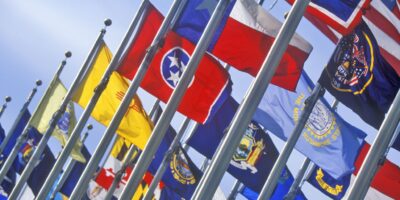Free the Entrepreneurs to Deal with the COVID-19 Crisis

The recent outbreak of COVID-19 has prompted a variety of policy responses from different nations. Likewise, it has prompted some variety of approaches within the United States. Many regulations prevent low cost solutions to problems related to this pandemic from being implemented. In particular, federal regulations restricting testing have been outright harmful while some state-level responses have cleared space for innovation.
This is not a crisis that we can depend on the state to solve through exertion of will. During a crisis, we want to promote a high level of creativity amongst problem solvers so that we can discover and develop cost-efficient solutions. These solutions are ready to be implemented by doctors, nurses, and business owners alert to opportunities that can alleviate this crisis. Too often these solutions are off-limits due to legal barriers in the form of regulation. These can prevent helpful innovation by encumbering entrepreneurs with unnecessary costs.
Deer in the Headlights
I have been mostly quiet over the last month as I have been learning more about COVID-19 and attempting to avoid the hysteria, despite the apocalyptic mood conveyed by the media. When the virus struck Wuhan, my first response, I must admit, was that this would not be a problem. SARS and Swine flu linger in recent memory, and neither of those seemed to be a problem. As COVID-19 spread to Italy and Spain, denial of the seriousness was becoming more difficult to justify.
The question lingered for weeks, what should the response be for the U.S.?
We failed to get ahead of this outbreak, responding when we finally saw evidence of spread. Troubles in Washington were the first signs for concern. A string of deaths added to 35 at the Life Care Center that had serviced 120 residents. By the end of the week, schools across the country, including North Dakota State University where I am part of the faculty, were closed as administrators attempted to assess the situation. Within another week, daily life, for most, would grind to a halt.
We were aware of an approaching health crisis, but no one was quite sure what to do.
A week later, I am not sure that the situation has greatly improved. Shutting down schools and social gatherings, practicing social distancing, and taking extra precautions like washing your hands regularly have helped, no doubt. But the hospitals are filling in New York where the contagion quickly spread. Other regions of the country quietly wait to see the impact of the virus on their own medical systems.
Enabling Entrepreneurship
We need a solution in the form of medicines, vaccines, or some novel methods to reduce the rate of transmission or mitigate the harsh effects of the virus. I don’t know what a solution or battery of solutions will look like. I don’t need to. I do know that markets reward creativity during crises. The bigger the problem, the bigger the reward.
The federal government has been slow to unleash the power of entrepreneurship by relaxing regulations. Instead of opening up the marketplace to search for a solution, the FDA has warned us that “the agency is beginning to see fraudulent test kits that are being marketed to test for COVID-19 in the home.” So no home tests are available, which means, by definition, all home tests were “fraudulent.” While the FDA has relaxed some regulations, at home test kits remain off-limits. The FDA, for the cause of public safety, has banned a low-cost form of detection as cases skyrocket across the United States.
Still, there is reason for hope. Governor Andrew Cuomo of New York recently signed an executive order that significantly reduces medical regulations that restrict the provision of treatment by specialists who are otherwise capable of providing this. In my home state, governor Doug Burgum has asked agencies across the state to identify provisions of any regulatory statutes, agency orders, or administrative rules that in any way prevents, hinders or delays the agency’s ability to render maximum assistance or continue to deliver essential services to citizens during the pendency of the COVID-19 crisis.
Governor Burgum’s call for recommendations for deregulation is for all domains affected by the crisis, not just the medical field. This wave of deregulation is intended to provide entrepreneurs the space they need to develop solutions in a changing environment.
We are in crisis and that crisis has not yet reached a peak. If states and – we can only hope – the federal government remove regulatory barriers that are preventing entrepreneurs from solving problems related to the COVID-19 crisis, perhaps that coming peak will not be a catastrophe and the shock to the economy will quickly become a distant memory.












